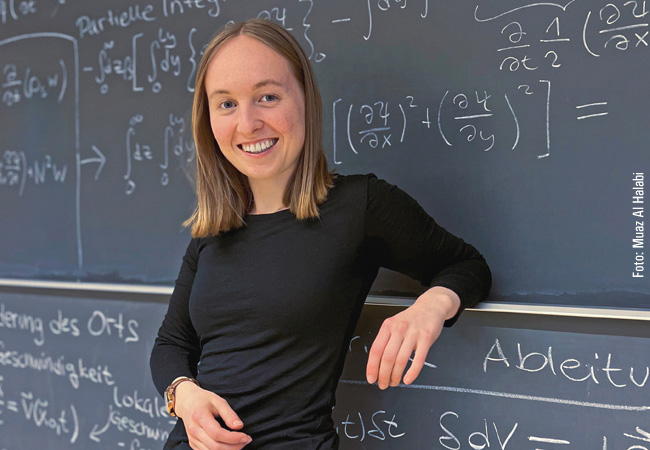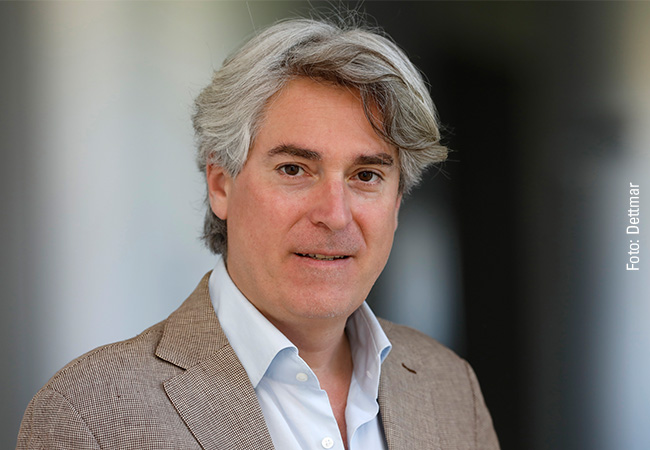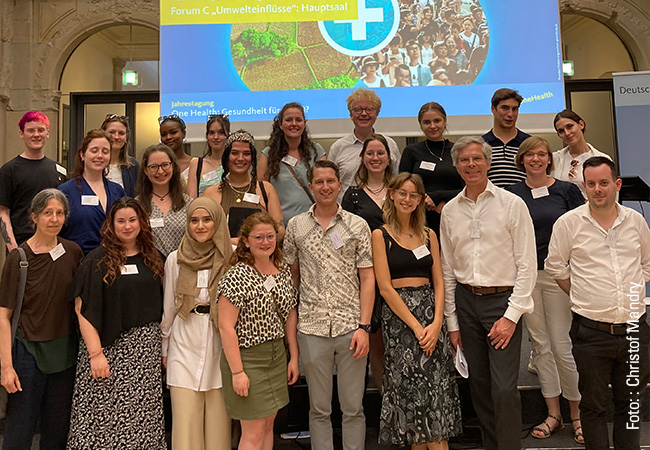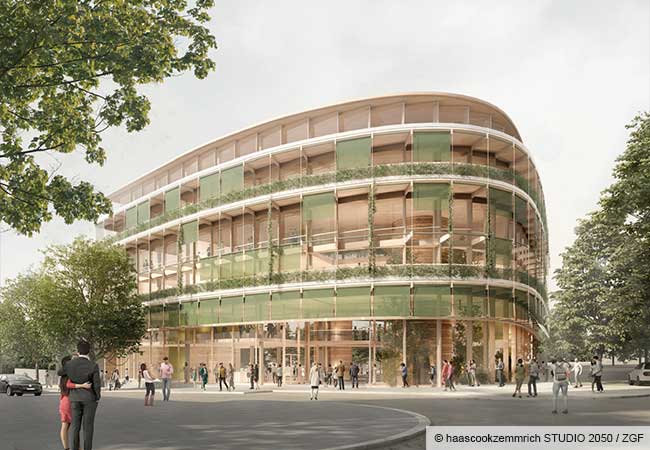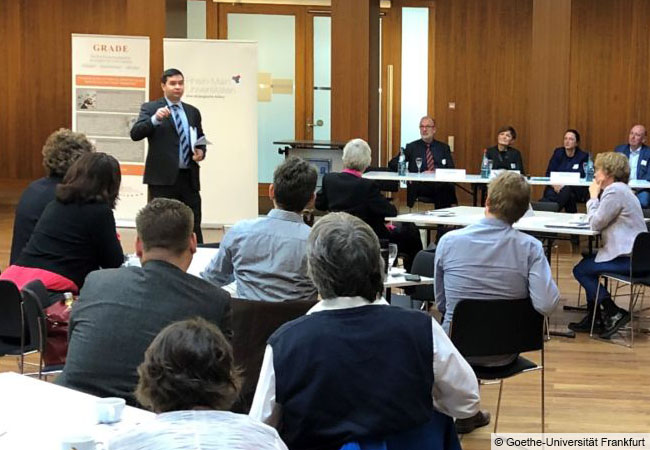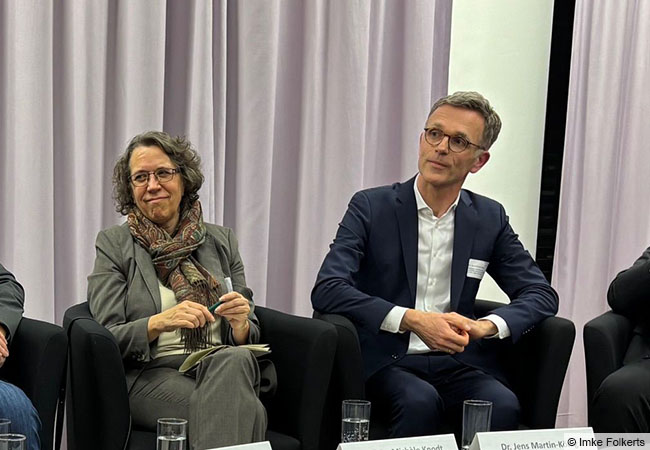A discussion evening held in late June at Goethe University Frankfurt’s Forschungskolleg Humanwissenschaften Institute for Advanced Studies took a philosophical look at the pro-democracy protests in Israel.
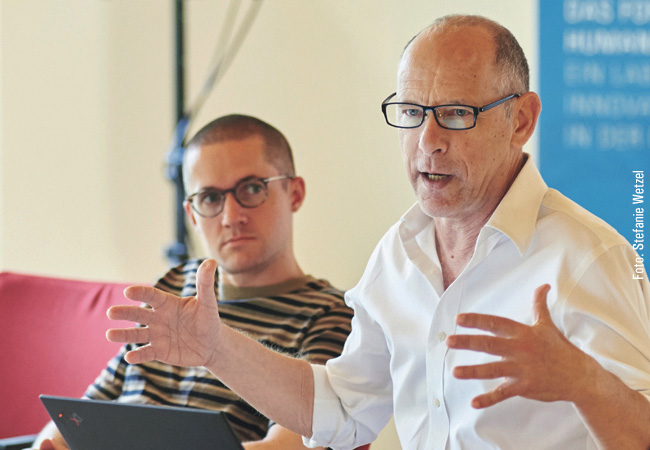
[Editor’s note: This article was written before the Knesset’s July 25 decision to pass the proposed judicial reform discussed below.]
The State of Israel turned 75 this spring. The anniversary celebrations coincided with what many have called the greatest domestic political crisis the state has faced since its founding: Since January, hundreds of thousands of people from all over the country have taken to the streets each Saturday, waving the Israeli flag, and protesting the so-called judicial reform of the elected right-wing conservative (in parts extreme right-wing) coalition government of Benjamin Netanyahu. The reform, they say, will disempower the Supreme Court and, as a result, severely threaten Israel’s rule of law. A discussion evening held at the Forschungskolleg Humanwissenschaften on June 26 took a philosophical view of developments in the country. The event’s initiator, Forschungskolleg fellow Daniel Statman, combines the perspectives of being both an Israeli participant in the protests as well as a philosopher: A professor of philosophy at the University of Haifa, Statman is an active supporter of the protest movement. He shared the stage with political theorist Cain Shelley, fellow of the Justitia Center for Advanced Studies, whose research at the Forschungskolleg focuses on political activism and social justice issues.
The struggle for a liberal Israel
Statman began the evening with a brief lecture on the background and course of the protests: what are the motives behind the controversial judicial reform – and would it not be more appropriate to talk of a „constitutional revolution,“ given that it threatens to abolish the separation of powers in the state? How can one explain the historically unprecedented size and duration of the protests against the government’s plan? The numbers speak for themselves, Statman said: For 25 weeks in a row, Israelis from across the entire country have spent their day off protesting; 500,000 people are said to have done so at the peak, including senior military personnel and reservists [Editor’s note: The figures reflect the situation before June 26]. They block roads, demand „democratia,“ sing the national anthem. In March, there was a general strike, during which universities, banks, and businesses closed down, and hospitals switched to emergency services only.
Statman’s attempt to organize and classify the events quickly made it clear that what we are seeing here is history in the making. The outcome is just as open as the plans and goals of the protesters and the ruling politicians are unclear. The discussion also showed that events in Israel are symptomatic of the much-discussed crisis of liberal democracy – even if they cannot be understood without taking into account the specifically Israeli circumstances. Statman explained that there has long been a smoldering anger in the country toward the ultra-Orthodox minority, which hardly pays into the state treasury and does not perform any military service, but which wields significant political power and is able to influence government action in its favor. The judicial reform is also understood as an expression of this ultra-Orthodox striving for power, with the possible goal being the long-term transformation of Israel from a liberal and secular into a theocratic state. Thus, the protests seem to express a longstanding malaise among the Israeli majority. In the end, Statman argued, for the protesters it could end up being about much more than merely preventing a judicial reform – it could be about a new „civil contract“ that sets Israel on a course toward a liberal-democratic-Jewish future.
The limits of legitimate protest
In the second half of the evening, Statman and Shelley focused on the philosophical perspective, with the debate centering on three questions in particular: What defines a successful protest? What constitutes a legitimate form of protest in a liberal democracy? How does the tension between nationalism and liberalism play out in the protest movement? Statman repeatedly emphasized that the protest is in keeping with the spirit of Zionist patriotism. Measured in terms of duration, size, and peaceful nature, the success of the protest movement largely can be explained by the fact that the protesters focus on their common Israeli citizenship and exclude from their cooperation issues of contention, specifically the question of the occupation. At this point, Shelley intervened and considered aloud how effective a pro-democracy protest in Israel that does not also protest the occupation can be, adding that the occupation, after all, not only practically strengthens a politically far-right, anti-liberal settler movement, but potentially also undermines the feeling of civic care and solidarity that constitutes the foundation of a liberal democracy. Ultimately, he argued, the occupation requires Israeli citizens to look the other way on a daily basis, to be indifferent to the suffering of Palestinians.
Shelley also offered some philosophical orientation on a question concerning the ethics of protest, which was prompted by two practices adopted by the protesters in Israel: traffic blockades and demonstrations in front of the private homes of government politicians. Referring to John Rawls‘ reflections on civil disobedience, he presented a moral justification of the protesters: They are not the „anarchists“ that government politicians and supporters label them to be, Shelley said, but rather act in the spirit of a „civility“ that affirms the supporting principles of the polity, the spirit of its laws.
A space for reflection
The discussion with the audience took up the notion of civility raised by Shelley, illuminating its normative performance, and evolved into a joint attempt at understanding the background of the protests and their perspective. Why has Israel never given itself a constitution – and how does this fact contribute to the current crisis? But also: How did this absence perhaps contribute to the long stability of Israeli democracy? What role is and might Israel’s security situation in the regional context of the Middle East play in the protests’ development? In keeping with good philosophical practice, these questions did not aim for conclusive answers, but sought to illustrate the complexity of reality. The evening thus offered a moment of reflection on and orientation within an ongoing development.
Carlotta Voß





